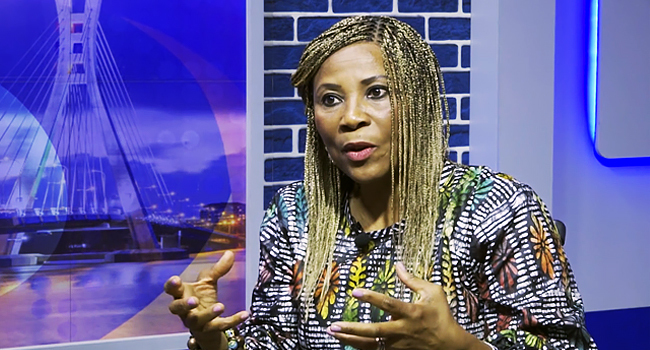She believes the technicalities of foreign aides has been a haggle for countries like Nigeria aiming to achieve the sustainable goals, suggesting a focus on the non-oil sector as a way out
The United Nations Assistant Secretary General and United Nations Development Programme (UNDP) Regional Director for Africa, Ahunna Eziakonwa, says the recent tariffs announced by the Unted States is a wake-up call for Africa to go beyond foreign aids.
She believes the technicalities of foreign aides has been a haggle for countries like Nigeria aiming to achieve the sustainable goals, suggesting a focus on the non-oil sector as a way out.
She made the comments during a visit to Channels Television’s Headquarters in Lagos where she spoke in an exclusive interview.
Eziakonwa said, “What is happening now globally is a wake-up call for Africa because what is making the achievement of the SDG that much more difficult, yes there has been covid, yes there has been a lot of financial turbulence, but the fact that we have not been able to go beyond aide to really prioritise things like structured transformation that allows us to add value to our raw materials so that our Africa is not just exporting raw materials rather than creating industries that will create jobs, that is the one that needs to be addressed urgently.
“And the current tariff situation pushes us even harder because you can’t just be an oil economy anymore, the volatility is too much, you can crash at any moment when the prices go down. So, you have to be forced to look at the non-oil sector, that forces you as a country to now say, ‘where are the investments that we need to industrialise, to do a little bit more manufacturing?”
In early April 2025, the United States significantly increased tariffs on Chinese imports, escalating trade tensions between the two nations.
President Donald Trump announced a 125% tariff on Chinese goods, citing China’s “lack of respect” in trade relations. Additionally, a 20% “fentanyl tariff” was imposed on specific imports, bringing the total tariffs on certain Chinese products to 145%.
In retaliation, China raised tariffs on U.S. imports from 84% to 125%, effective April 12, 2025. This move mirrored the U.S.’s tariff rates and intensified the ongoing trade conflict.
The U.S. also imposed a 14% tariff on most imports from Nigeria, a move it said was part of a broader strategy to address trade imbalances. It has, however, temporarily paused the 14% tariff.
On April 9, President Donald Trump announced a 90-day suspension of the reciprocal tariffs affecting 60 countries, including Nigeria.

